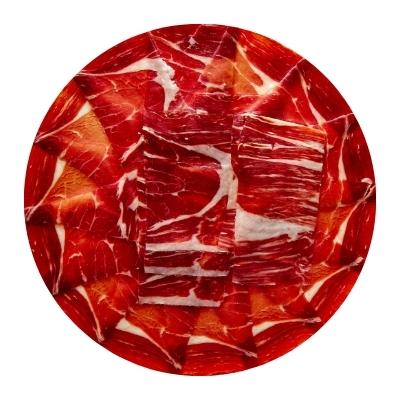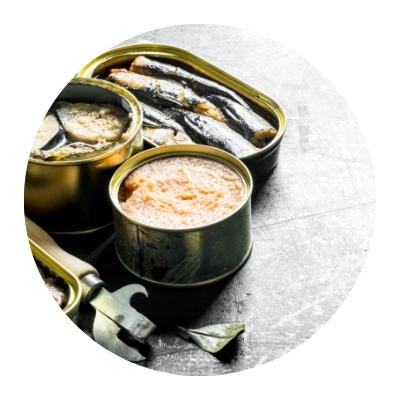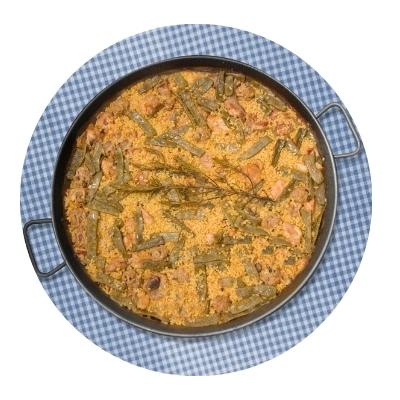"What makes our Pimentón de la Vera so special is smoking"
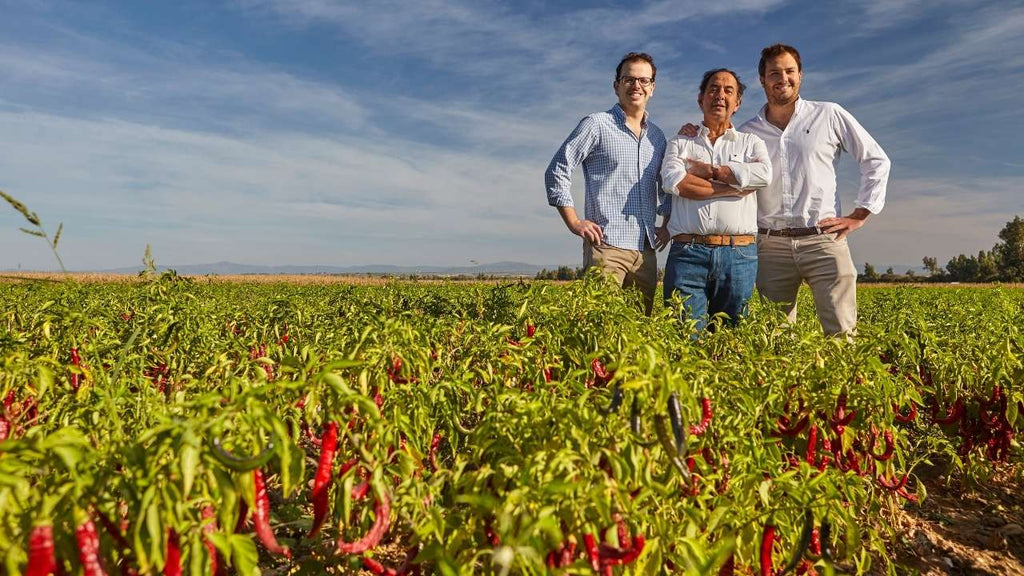
"For two weeks, our peppers are gently smoked over oak wood and dried in the process," says Carlos Olivo in an exclusive interview for Colono about the "Pimentón de la Vera" from "La Chinata"and the smoked olive oil from “Finca La Barca”. It is the same procedure that monks used half a millennium ago in the famous monastery of Yuste, where Charles V spent his old age. "This not only gives the paprika its unique aroma, but also preserves the carotenes for the intense red color."
Question: Are the pimentón plants that will ripen this year already germinating?
Answer: We always start in February, usually around the middle of the month, to put the seeds in their germination containers. These will grow in the greenhouse until May before we pass them on to our farmers, who will then plant them in their fields, depending on the rainfall and temperatures. Then they are about four to five centimeters in size. The climate here in Extremadura is quite extreme. We have pretty cold winters and hot summers too. Whereby through the northern one Sierra de Gredos we are usually not affected by extreme heat waves.
Question: How many farmers grow Pimentón for you in the Vera region?
Answer: We are all like one big family. And there are around 80 farmers, all of them like us family businesses, with whom we have often worked for over 30 or 40 years. We give them the cuttings in May and then we take the harvest. It is a cohesion, because without their work we would not have a product. We appreciate them very much. Each of the approximately 80 farmers cultivates between 150 and 180 hectares of land with pimentón plants.
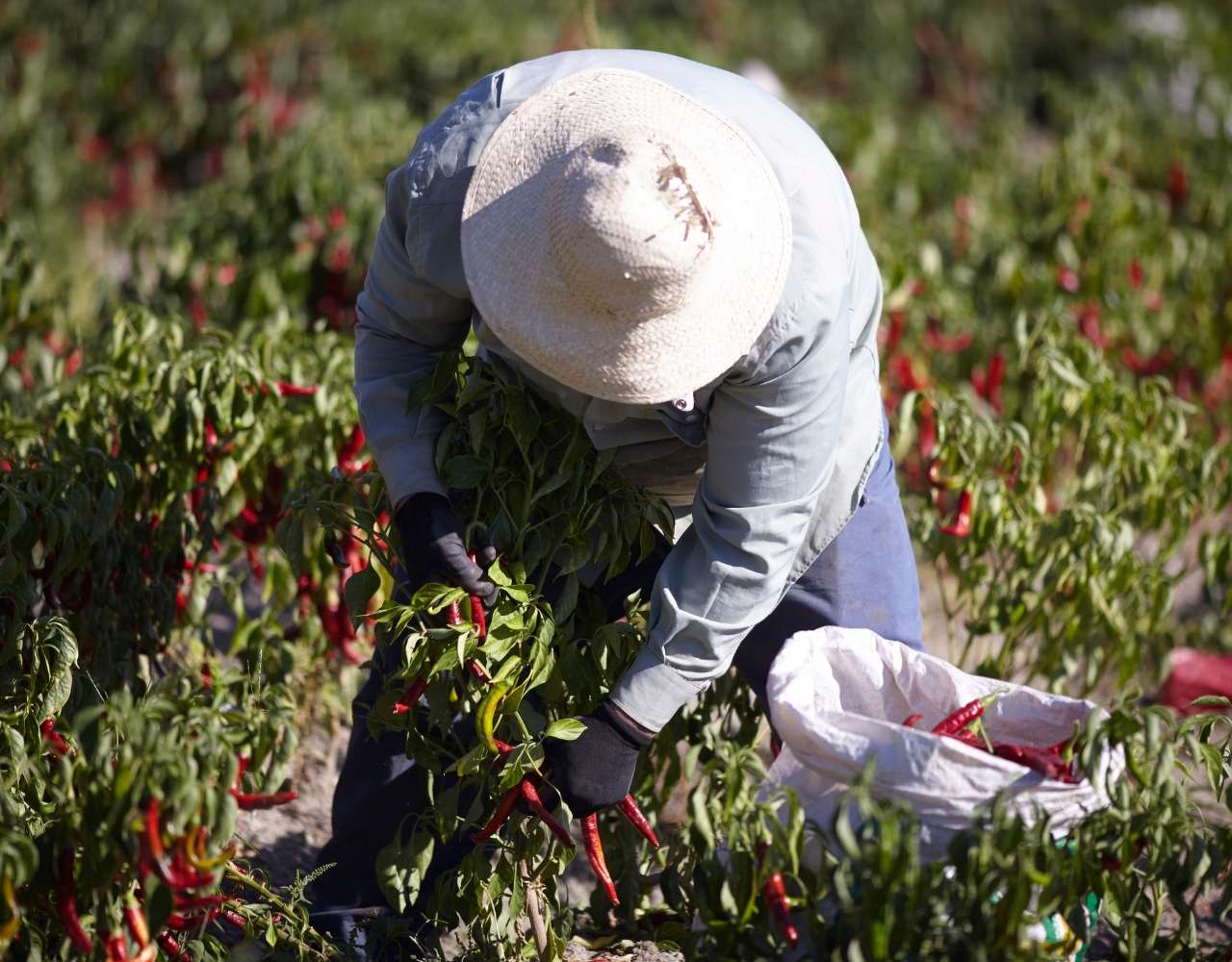
Question: When it comes to the varieties, you bet on three, the sweet Jaranda pepper, and Bola, the finely bitter Jarisa pepper and the more spicy Jeromín. "Jarisa" now has nothing to do with the Tunisian chili sauce "Harissa", does it?
Answer: No, they are not from Tunisia. (laughs) In Extremadura, we were pretty much the first to cultivate peppers in the 'Old World', which had only just been brought to us by Christopher Columbus in 1493 and the first discoverers as well as the later conquistadors. They were monks who lived in the not far from here Yuste Monastery the first seeds were planted. The monastery, which is also famous as the old seat of Emperor Charles V, also used the smoking of the paprika pods, which is so characteristic of the until today Pimentón de la Vera. This is because here, unlike in drier or milder areas of Spain, such as around Murcia or in Andalusia, it is not possible to air-dry the peppers in autumn. So, the monks smoked and dried over holm oak and oak wood, as we still do today over 500 years later. A process that takes 15 days at low temperatures. This way you dry and smoke at the same time. This is also what makes the Pimentón so special. Our 'smoked paprika' is simply unique. A genuinely nice side effect of this slow and gentle production is that the dried paprika gets the red-yellow natural colouring, the so-called carotenes. This makes the powder particularly colour-intensive, more vibrant, and so are the dishes that are prepared with it.
Like the first peppers from the "New World"
Question: What are the taste characteristics of the individual varieties? Although I have to emphasize that the 'hot' pimentón is nowhere near reaching spheres that bring a Thai, Habanero or even Carolina Reaper experience to the sensitive palate.
Answer: 60-70 percent of our customers use this sweet pimentón. What the varieties are used for depends of course on the taste of each individual. And the culinary tradition of the regions. In Extremadura, the most common is bitter-sweet pimentón. Minimal spiciness and less sweet, that's what is preferred here. The spicy pimentón many use it for the famous “Pulpo a la Gallega” or over the braised smoked meat Lacón. The sweet pimentón is practically for everyday use, stews, lentils, rice dishes, braised vegetables and wherever it goes with it. The sweet one is probably the most popular and best choice for children too. The bitter-sweet one is also particularly popular with gourmets. And we are trying to create an "extra-savory" one, as this is requested by customers from regions where spicier dishes are eaten. In the international market there are countries where what we call “spicy” is seen as a joke, for example in Mexico or Morocco. Sharpness is also increasingly in demand in the catering industry. What you can see with the abundance of extremely hot sauces that are in demand. We will work with the seeds of the Jeromín peppers, because we are only allowed to use autochthonous plants that are certified here in the Vera region. Our peppers have a maximum of 8000-12,000 Scoville degrees on the Scoville scale (note like a jalapeño chili, for example. Other varieties internationally exceed values of one and two million (note Carolina Reaper, Trinidad Moruga Scorpion) yes madness!
Question: In the meantime, you also have an organic paprika powder with an organic seal in your assortment. I assume it took some time to get this ...
Answer: ... we started this project many years ago because the procedures also take years. Last year we implemented it, also because more and more customers want an organic paprika powder. Sales are still exceedingly small, but I expect them to grow year by year, and significantly. Especially in Central and Northern Europe, organic farming already has a considerable weight, unlike in the countries of the Mediterranean region. But here, too, it will continue to grow.
Question: You and your brother Javier are now the third generation to manage la “Chinata”, with your father Cecilio. What are your memories of the family business from your childhood and youth?
Answer: My grandfather founded the company in 1975 and yes, we have “Pimentón de la Vera” in our blood, as they say. We always helped, at the beginning especially during the harvest season, and then when we were 15-16 years old in the office. At that time I was already translating mail and e-mails, primarily in English, in order to also force exports. My father is not gifted with languages, even if he has traveled a lot, he can hardly speak English. For us, for me and Javier, “La Chinata” is a way of life, and also far more than a hobby. We give everything for you.

"Thousands of uses"
Question: In your generation you have managed to make “La Chinata” an indispensable part of kitchens and Spanish restaurants. You now export to over 70 countries. What is the share of sales made by the international market and where is demand particularly high?
Answer: Around 70 percent of our pimentón already goes abroad. Spain accounts for around 30 percent, although the competition is greater here, there are far more producers and we only want to be represented in the top segment. We don't want to see our cans on the shelf of a discounter. But in well-stocked supermarkets and delicatessen shops. We were the first on the international market, which also brings us a leading role. The USA and Canada are important export markets, as are the Far East, Singapore and Taiwan, for example, where our sales are growing steadily. We have also had a strong presence in Saudi Arabia for a number of years, which surprised and pleased us. Our “La Chinata” can is also available in Arabic, which is also very much appreciated by customers there. My father was thought to be crazy 30 years ago when he started selling pimentón abroad. He planted the seeds all over the world, thanks to many trips, his participation in trade fairs, contacts with cooks. And that has borne fruit. Such an undertaking cannot be implemented overnight either. It has to be done slowly and carefully, step by step. Here has for us too Colono Gourmet an important meaning. That “La Chinata” is becoming more and more known and appreciated by customers. And yes, Latin America would be a good export market, also because of the culinary connections to Spain. But it is a very complex market, with unmanageable regulations, a lot of slow bureaucracy and also economic fluctuations, such as the periodic crises in Argentina. But we have been present in Argentina again since 2020. And we get hundreds of positive comments from customers there too.
Question: I have to admit, I've already prepared goulash mixed with your sweet and savory peppers. The result was delicious, with that fine smoke aroma and deep red color.
Answer: The Pimentón de la Vera does not have to be used solely for Spanish dishes. It goes well with so many things, be it pizza or pasta, a kebab instead of the Turkish Pul Biber just our pimentón flakes, which are made without seeds - and that by hand - and thus look great, a hamburger, sushi or the Hawaiian 'poke' that are booming. It doesn't always have to be a paella or a Spanish lentil stew (laughs). There are a thousand possibilities.
Question: It's just wonderful on the fried egg ...
Answer: For me, one of the easiest dishes is a ripe, meaty seasonal tomato, a little olive oil, fine salt flakes and pimentón. I do not need more.
Question: The name and the logo are very memorable and have almost become the epitome of “Pimentón de la Vera”. How did your grandfather get the idea?
Answer: My grandfather was born in a place not far from here, in Malpartida de Plasencia. And the women from the village are called "Chinatas", it is the historical name of the inhabitants, very simple. There are many theories about why. One of them is that the residents here used slingshots, in Spanish "Tirachinas".

Smoked olive oil and aioli
Question: Your grandfather said, 'A kitchen without pimentón would be sad or even sick'.
Answer: I would think more of a 'sad' one. Also because we live in a time where a lot of things no longer taste as they should. The meat from industrial production, meat factories, chickens from factory farming, overbreeding and mass production, including vegetables and fruits. But much more, spices, like our natural product the pimentón, serve to give dishes a certain extra, a kick.
Question: You recently came with me too "Finca La Barca" launched an innovative gourmet line with smoking Arbequina olive oil in the same process as the bell pepper pods ...
Answer: The idea is rooted in our philosophy: We don't want to do what many others are already doing. Instead, we always have to stand out, with a special focus on top quality. Me and my brother are always tinkering with things and always have new ideas. The production of olive oil is something that has always been part of our family. My mother's family had olive groves and my father's had a traditional olive mill. But there are countless excellent oils and varieties on the market. All of them top quality and taste, so we just had to stand out. And we just thought that what makes our Pimentón de la Vera so special is smoking. So why don't we experiment with olive oil and the process. It was not easy, also because the oil must not lose its quality, especially in terms of taste and smell. But we succeeded, and the limited production is selling excellently. Last year we sold all of the bottles, so this year we increased production a little.
Question: I haven't tasted it yet, but I am told that the aioli that you make from this smoked olive oil is heavenly.
Answer: When we had the smoked olive oil in our hands, we immediately wanted to try out how the typical sauces that are made from it taste like. I always make my aioli and mayonnaise myself anyway. When I got my first AioliI knew it would be well received. And with it we won an important award, one of the "Great Taste Awards"in England. It was a great honor for us and a confirmation of the work we are doing. And we sent our pickled smoked Pimientos del piquillo to a star chef in Germany, and he said: These would be the best he has tasted in his life. You can only do that if you focus on quality and want to stand out with products. So it is with pearls from Pimentón de la Vera, a gourmet product, priced but unique. A kind of caviar made from paprika. Ideal for festive dinners, but also for presenting dishes in restaurants.

Question: Finally about yours Paella sets and the paella-spice mix from “La Chinata”, which are completely different from the sometimes unspeakable mixes of paella and colorants that are available in Spanish supermarkets. And that way you don't get upset with your paella among Valencian purists like Jamie Oliver on Twitter ...
Answer: We want to relieve amateur cooks of their fear of preparation. And make the preparation as easy as possible. A top rice of the Valencian "bomba" type, an excellent olive oil and our absolute natural blend of spiceswhich primarily consists of pimentón and real saffron. This brings you very close to a good paella experience at home in Spain. What you add to it, vegetables, seafood, meat or even just the rice with the spice mixture, as I often do, tastes great. There are no colorings or preservatives in our spice mix and it is gluten-free. Of course you can also use our whole dried pepper Ñora for the paella.
To person:
Carlos Oliva In the third generation, with his older brother Javier Oliva and his father Cecilio, he leads “La Chinata”, producing the best Pimentón de la Vera (D.O.) and products from the autochthonous paprika varieties in the north of Extremadura for gourmets and top gastronomy. As well as with “Finca La Barca” traditionally, like the paprika pods, for 15 days olive oil smoked over oak wood, aioli or pimientos del piquillo. Small, pickled, smoked peppers that are stuffed in Spain. A poem!
SHARE:
